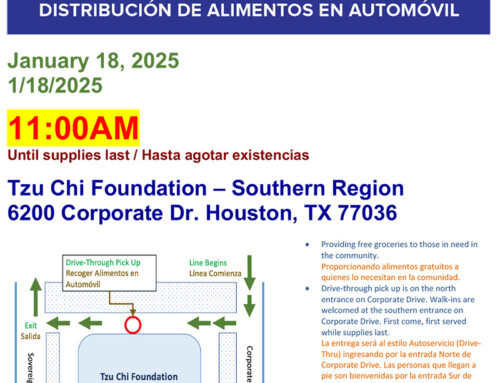As another week begins, yet again the American Red Cross is responding to another major disaster that has wreaked havoc and changed thousands of lives forever. As you read below, keep in mind the sheer costs involved with responding to and caring for the thousands affected. It is a long response and recovery process that is just beginning.
Now that Hurricane Matthew has moved eastward and back out to sea, we are just beginning to fully see the scale and scope of destruction that Matthew left from Florida up the east coast to North Carolina. The American Red Cross housed more people in shelters, over 27,000 in nearly 200 shelters, than during the peak of Superstorm Sandy! As of this morning there were still about 7,000 people in Red Cross shelters. Unfortunately, at least 15 people have lost their lives in the U.S. as a result of Matthew and more than 1.4 million people remain without electric power. One of the hardest hit areas from flooding occurred in parts of South Carolina and North Carolina where more than 1,000 water rescues have taken place since Saturday.
Even before Matthew made it to the Florida coast the American Red Cross was proactively positioning supplies, manpower, and setting up shelters. More than 2,200 Red Cross disaster workers are on the ground supporting evacuation shelters and response efforts where it is safe to do so. Evacuation shelters are closing in some parts of Florida but more are opening in North Carolina and South Carolina. The Red Cross has deployed 95 emergency response vehicles and 94 trailers filled with water, ready-to-eat meals, shelter and kitchen supplies, cleaning supplies and comfort kits, insect repellant, gloves, masks, shovels, rakes, coolers and more. The Red Cross is working with government officials, other non-profit groups, faith-based organizations, area businesses and community partners to coordinate response efforts.
Sadly in the Caribbean, widespread damage grips Haiti, which was the hardest hit along with Jamaica, Cuba, the Dominican Republic and the Bahamas. Early estimates are that more than 300,000 have been left homeless and over 800 lives have been lost. Access throughout Haiti remains challenging due to extensive flooding and damaged infrastructure (debris, washed out roads & bridges). Many areas remain without electricity and cellular connectivity. Preliminary aid flights carrying vital supplies are just beginning to gain access to Haiti. The main bridge in Petit Goave which was washed away in the flood waters has made it difficult to travel to the western region of the country. The Haitian Red Cross has begun distributing Emergency supply kits in affected areas including cholera prevention kits, hygiene kits and kitchen sets. Community intervention teams are also conducting search and rescue & basic first-aid. The International Federation of Red Cross & Red Crescent Societies (IFRC) is mobilizing several response teams to deploy to Haiti for both assessment and response work in various sectors.
The American Red Cross will play a lead role in the coordination of overall relief supply distribution in country and has delegation staff directly engaged with the Haitian Red Cross branches in the south, West and Northwest departments, providing technical, logistical and financial support. We are deploying three Disaster Response Specialists to assist the IFRC, HRC, and ARC field staff with emergency operations. Three teams in Haiti made up the delegation staff who pre-deployed throughout the affected areas are beginning damage assessments and distribution of pre-positioned relief supplies. In an effort to mitigate the spread of cholera as a result of the floods, the American Red Cross has completed an initial distribution of 1,000 hygiene kits and 600 cholera-prevention kits. Additional relief supplies such as water purification products, shelter kits and mosquito nets are being procured locally and internationally through the global Red Cross network. Generators and VSATS which provide high speed, broadband satellite communications for Internet or private network communications are being sent to Haiti. To facilitate communication between family members, the Red Cross Restoring Family Links program has activated the Family Links website where individuals can register missing persons, register themselves as safe and search a database of other registered persons. Red Cross staff are supporting the operation remotely with Information Management and Geographic Information System (IM/GIS) support. The team is producing maps of vulnerable populations and damage to infrastructure.






Leave A Comment